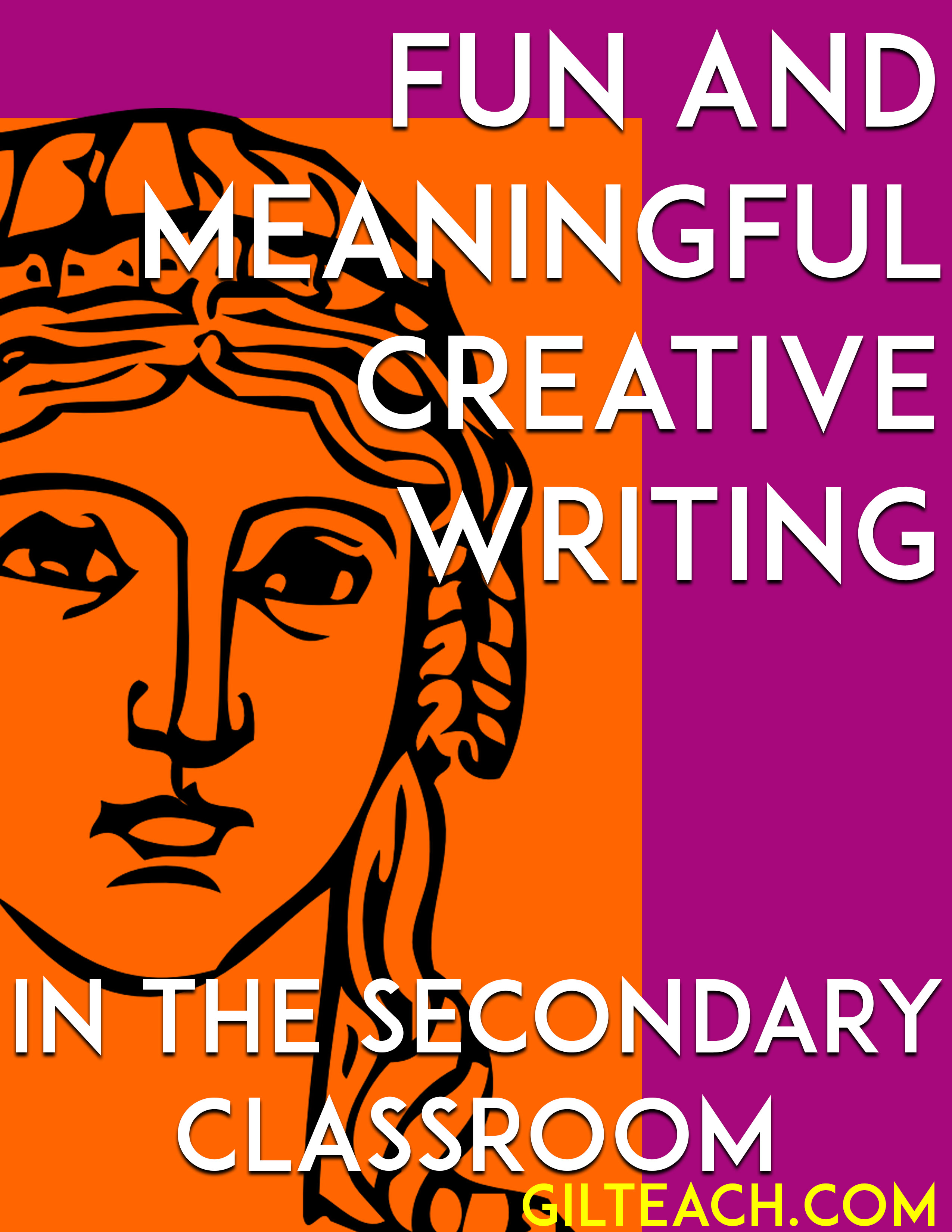5 Ideas For Fun And Meaningful Creative Writing In The Secondary Classroom

At the beginning of the school year when I let students ask me anything they wanted, I invariably got the question “Will we be doing any creative writing in this class?” Usually, the kid who asked the question felt that they had not been given enough opportunities for creative writing in their other English classes. I think that many teachers have good intentions to give their students opportunities to be creative and experiment with different forms, but after all of the requirements have been fulfilled and assigned and graded, they run out of energy for one more piece of writing.
But creative writing doesn’t have to be the fluff that you do after the real writing. Creative writing can be a great opportunity for students to showcase what they have learned, and to do so in a compelling and innovative way.
Here are 5 ideas for assigning fun and meaningful creative writing.
(By the way, all of these ideas as well as step-by-step instructions, handouts, rubrics, bonus creative writing lesson plans, and handouts for peer conferences can be found in my 9th Grade Writing Prompts: Fun Creative Writing Topics resource.)
The villain retells the story. This is a great exercise in perspective and point of view. Inspired by the picture book The True Story of the Three Little Pigs by Jon Scieszka and Lane Smith, the idea here is that students rewrite a text that they have studied from the point of view of the villain. Teaching empathy is not always simple or straightforward, but with this assignment students get a nice glimpse into the other side. It’s also a fun way to think about what’s objective and what’s subjective.
Write an epic poem. This is an assignment that I developed after my classes had finished reading The Iliad or The Odyssey. The idea is that students synthesize the characteristics of an epic poem into an autobiographical story about their own “epic battles.” So they might write about their fight to grab the last turkey sub in the lunch room but when they incorporate a direct address to the muse, gods who meddle in their lives and make things more difficult, an epic simile, and an epithet, the juxtaposition makes for some hilarious writing. What I most love about this assignment is that given their emotional state of mind, most teenagers really do view their own struggles as epic battles—but by writing about them this way, they gain a little perspective and sense of humor about their lives. Ultimately, the goal of this assignment is for students to understand and convey the ancient Greeks’ world view. When they can demonstrate that to a reader through a fictional story, they have truly completed my goals in studying the ancient poems.
Write historical fiction. When we study an older text in class, I want students to notice the universal themes that connect human beings in all cultures and time periods. But I also want them to realize how differently people have lived in different places and times. By collecting information from a text we read in class—doing research on customs, vocabulary, objects, and ideas of the past—students get a deeper sense of what life was like. Then, when they use that research to create an original story incorporating the cited details from the text, they truly internalize that research in a way that just reporting it in an informational essay would never achieve.
Try a poetry imitation. I first got the idea to assign a poetry imitation to my classes when I read Kenneth Koch’s hilarious parody of Williams Carlos Williams’ poem “This is Just To Say.” So I follow Koch’s lead in this assignment. After reading and analyzing the original poem and the imitation, students write their own imitations. Not only to do they fully integrate and understand the poet’s craft and the themes of the poems this way, they also try writing their own poems in a non-challenging way. And the best part of this whole assignment is that they see that writing can be lots of fun.
Rewrite a scene from a Shakespeare play. I have tried all sorts of summative assessments for Shakespeare. I have tests that task students with identifying and explaining quotes, quizzes that ask about plot specifics and theme statements, and assignments for students to write and support their own thesis statements about meaning in the plays. But when I think about my goals for the whole play unit, I have three main aspirations in teaching the Bard. I want students to be able to read and understand Shakespeare, I want them to grasp the limitations and strengths of the play format, and I want them to comprehend the relevancy of Shakespeare to their lives today. All of these goals can best be achieved, I believe, when student students take a specific scene and rewrite it in a modern context. So I give a group project where students paraphrase, analyze, rewrite, and finally perform a section of a Shakespeare play. The performances are super fun, and students always remember the scenes they have rewritten.
Of course, all of these assignments work best because they have specific directions, scaffolding leading up to the final product, and rubrics which I’ve developed over the years. You can see what that all looks like by checking out the lessons here.
The best part of assigning this kind of writing is that the end results are much more fun to grade.
And anything that makes it easier to get through that pile of papers is more than welcome.
